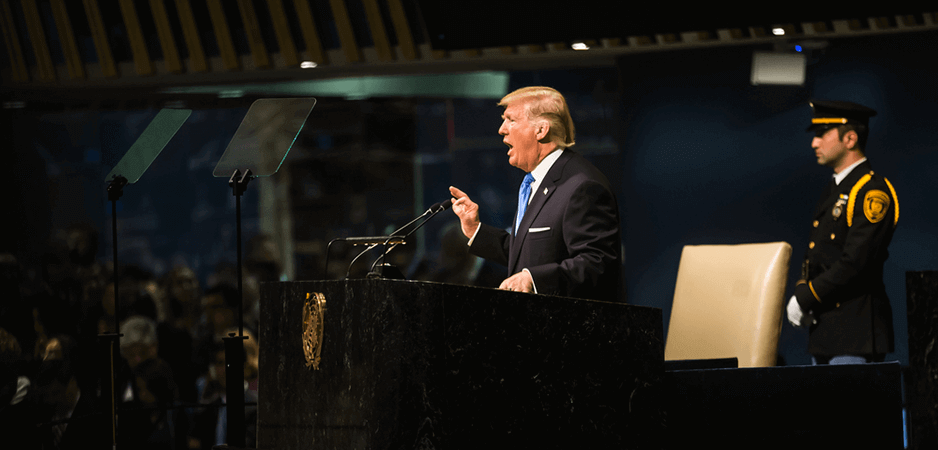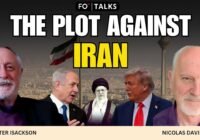On June 13, 2025, Israel launched an offensive against Iran without provocation, killing the country’s top military leaders as well as striking Iran’s nuclear enrichment facility in Natanz. Israel claimed that the attacks were meant to prevent the Iranian government from developing nuclear weapons, alleging that the country was close to doing so.
Iran has accused the International Atomic Energy Agency (IAEA) of divulging information that allowed Israel to strike Iran. If this is true, immediate actions, such as an independent investigation into the IAEA, must be taken.
Iran accused the IAEA of violating confidentiality
In 1968, the US, the then-Soviet Union and the UK created the Non-Proliferation Treaty (NPT), which came into effect in 1970. Its objectives are to stop the spread of nuclear weapon technology, promote peaceful cooperation in using nuclear energy and pursue global disarmament. Under the NPT, member-states have the right to develop nuclear energy for peaceful purposes, provided they are not diverting it to nuclear weapons or explosives.
The IAEA is charged with verifying member states’ compliance and obligations to the NPT, as well as devising means to pacify threats associated with the diverse uses of nuclear energy. As of November 15, 2024, 180 countries are members of the IAEA. Iran is one of these members. Therefore, like other member countries in the IAEA, Iran has the right to enrich uranium for peaceful purposes.
Yet, while Iran continues to assert that it has complied with the IAEA, a May 31 report from the IAEA Board of Governors declared Iran in violation of its obligations under the NPT. In the report, the IAEA claimed that Iran failed to provide reasons for uranium traces at undeclared sites. Iran has denounced the report, calling it politically motivated.
The country also claimed that its intelligence agencies had obtained documents alleging that the IAEA Director General, Rafael Grossi, had been secretly collaborating with Israel and Western countries. These documents allege that in a violation of the IAEA, Grossi shared with Israeli intelligence the locations and details of Iran’s nuclear research as well as the names of Iranian scientists. Iran has also claimed that the documents prove that Grossi attempted to gain personal favor from Western countries in an effort to secure a position as the UN secretary-general. Allegedly, Grossi’s accusation of non-compliance was a ploy that set the stage for Israel’s unprovoked June 13 attacks.
Israel claimed a nuclear threat from Iran was imminent
The June 13 attack sent shock waves across Iran. Iran said 78 people were killed in the strike, including top government officials and nuclear scientists at the Natanz site. Within a day, Iran responded by firing over 100 drones at Israel. The strikes continued for 12 days. During this period, Iran reported that over 400 people had been killed and over 3,000 injured. Israel reported 24 people killed and over 1,000 injured.
Meanwhile, the US, Israel and Iran pursued indirect negotiations for a ceasefire. Iran expressed willingness to put an end to the conflict if Israel stopped attacks as well. However, on June 22, the US entered the conflict. More than 125 US military aircraft conducted strikes on three of Iran’s nuclear facilities. B-2 stealth bombers dropped 30,000-pound bombs on the facilities in Fordow, Isfahan and Natanz.
Despite US President Donald Trump’s consistent claims that the operation had obliterated Iran’s nuclear facilities, the US strike may not have done as much damage as previously stated. According to US intelligence, the airstrikes set the nuclear program back only by a few months. In addition, after the attack, Iran suspended all cooperation with the IAEA, further complicating US intentions to restrict Iran’s nuclear program.
Iran’s next steps
On July 2, Iranian President Masoud Pezeshkian signed a law that suspended all cooperation with the IAEA. Iran cited both the June 13 attacks by Israel and the June 23 strike by the US as reasons for ceasing cooperation. However, this is only the first step. If the IAEA truly violated its neutrality, as the Iranian government has claimed, Iran has options to address the grievances.
First, Iran can request the IAEA’s Board of Governors to carry out an independent investigation of Grossi and his team. If they are found guilty of violating confidentiality and neutrality, Grossi should be removed for ethical violations.
Second, as a founding member of the United Nations, Iran could file a case with the International Court of Justice (ICJ) against Israel and the US based on the damages and the deaths incurred. The ICJ has already condemned Israel’s June 13 attacks against Iran as a violation of the UN charter.
Third, Iran could leverage its suspended cooperation with the IAEA as well as the paused negotiations with the US. If the US wishes for Iran to resume talks, Iran could make cooperation contingent on Israel joining the NPT.
While the long-term consequences of the attacks on US-Iran negotiations are unclear, even the IAEA warned that the strikes may push Iran to pursue nuclear weapons. A year before the recent conflict, a survey revealed that over 69% of Iranians “support Iran pursuing nuclear weapons.” That number may have increased since the strikes.
The heavy-handedness of Israel and the US in the region is no longer sustainable. President Trump, who brags about power and bombs to force Iran to surrender, can take advice from Pope Leo XIV on the cry for peace: “It is disheartening to see today that the strength of international law and humanitarian law no longer seems binding, replaced by the presumed right to overpower others.”
[Cheyenne Torres edited this piece.]
The views expressed in this article are the author’s own and do not necessarily reflect Fair Observer’s editorial policy.
Support Fair Observer
We rely on your support for our independence, diversity and quality.
For more than 10 years, Fair Observer has been free, fair and independent. No billionaire owns us, no advertisers control us. We are a reader-supported nonprofit. Unlike many other publications, we keep our content free for readers regardless of where they live or whether they can afford to pay. We have no paywalls and no ads.
In the post-truth era of fake news, echo chambers and filter bubbles, we publish a plurality of perspectives from around the world. Anyone can publish with us, but everyone goes through a rigorous editorial process. So, you get fact-checked, well-reasoned content instead of noise.
We publish 3,000+ voices from 90+ countries. We also conduct education and training programs
on subjects ranging from digital media and journalism to writing and critical thinking. This
doesn’t come cheap. Servers, editors, trainers and web developers cost
money.
Please consider supporting us on a regular basis as a recurring donor or a
sustaining member.
Will you support FO’s journalism?
We rely on your support for our independence, diversity and quality.












Comment